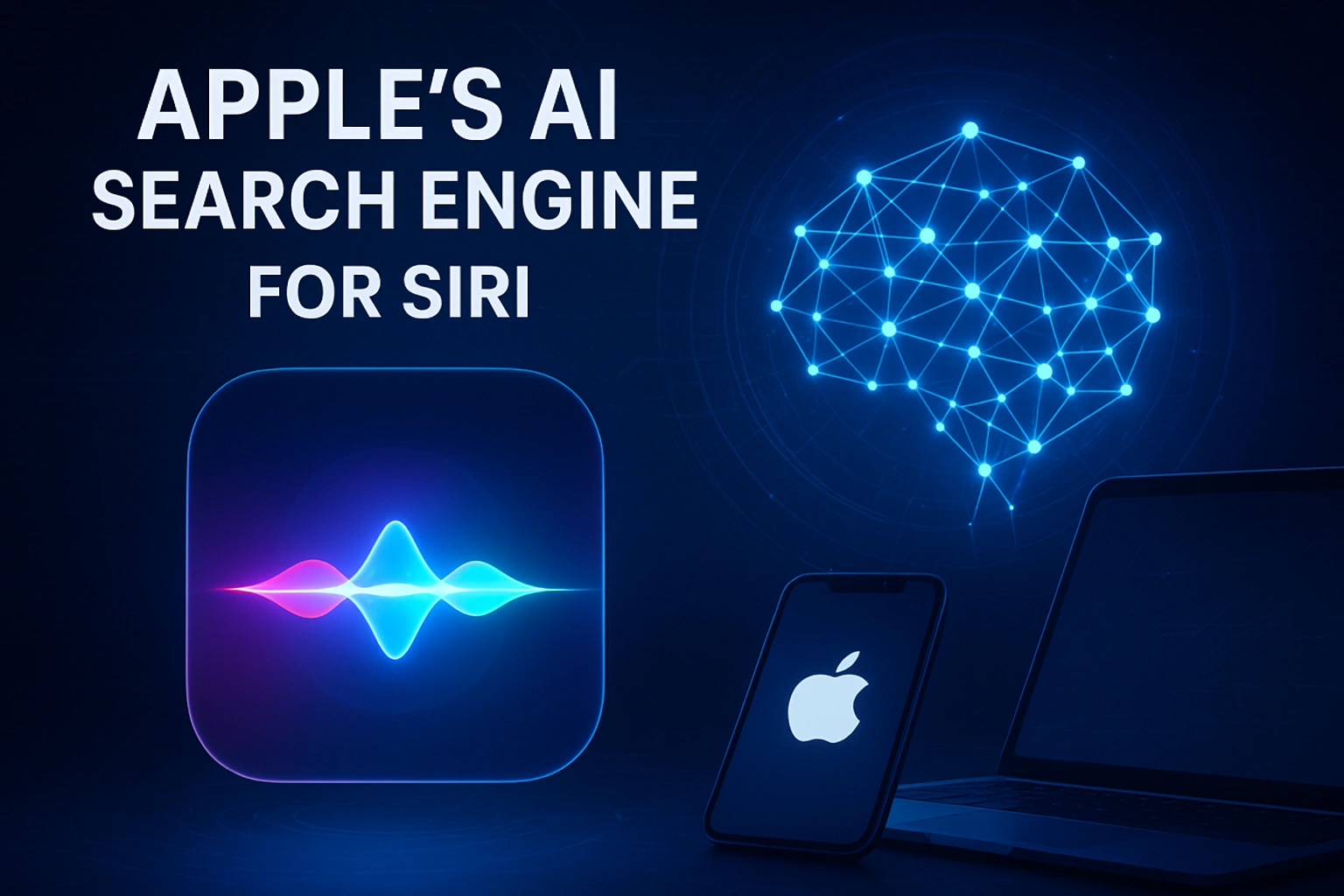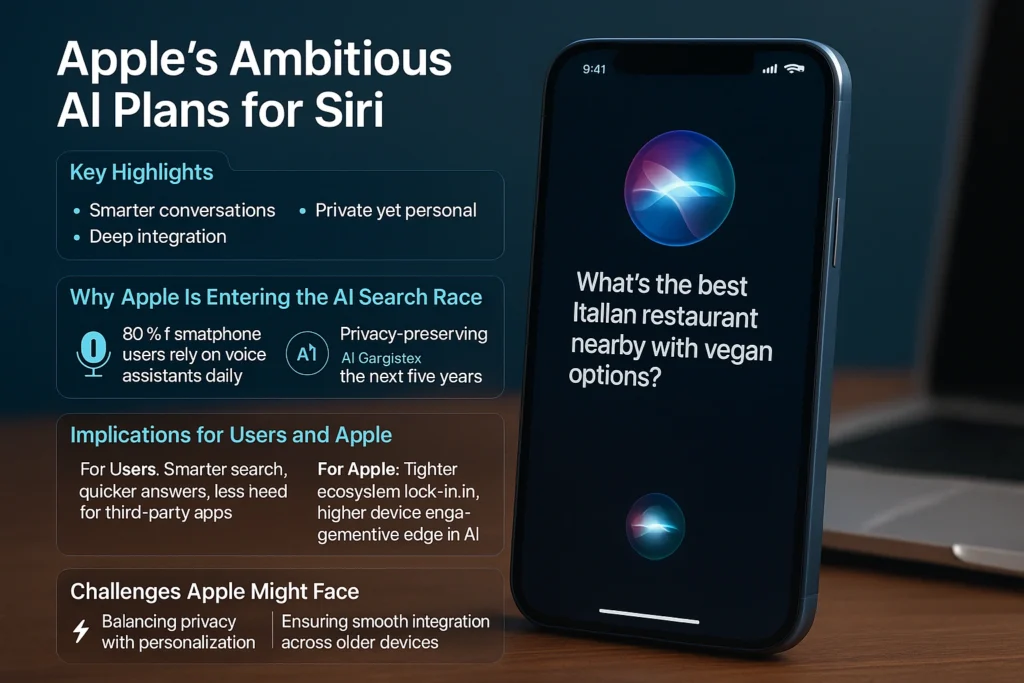
- September 4, 2025
- Top Search
- 11:15 am

Imagine asking Siri a question and getting answers that feel almost human—precise, insightful, and perfectly tailored to your needs. Apple is taking a bold step forward with its AI-driven search engine, designed to make Siri smarter, faster, and more intuitive than ever. This innovation promises to transform the way millions of users interact with their devices daily, blending advanced artificial intelligence with Apple’s signature privacy-first approach. Unlike traditional search tools, Apple’s AI will focus on context, personalization, and seamless integration across iPhones, Macs, and iPads.
By entering the AI search race, Apple is positioning Siri to rival industry giants like Google and OpenAI. Early reports suggest this intelligent engine could even anticipate user needs before questions are fully asked, delivering answers that feel natural and human-like. With this development, Siri is no longer just a voice assistant—it’s evolving into a powerful digital companion, ready to redefine how Apple users find information, make decisions, and navigate the digital world.

Apple’s Ambitious AI Plans for Siri
Apple has long focused on privacy-first, smart assistants. Now, internal talks suggest the company is developing an AI-powered search engine to make Siri more intuitive and capable of rivaling the likes of Google Search and ChatGPT.
This move marks a significant shift in how Apple approaches artificial intelligence, moving beyond simple voice commands to complex query understanding.The AI engine is expected to analyze context, user behavior, and preferences to provide smarter, more relevant answers.
Key points:
Enhanced conversational AI understanding
Personalized search results without compromising privacy
Integration across iOS devices for seamless experience
Why Apple Is Entering the AI Search Race
AI is transforming how we search for information. Google has led for decades, while OpenAI’s ChatGPT has demonstrated a new interactive way to access knowledge. Apple wants to combine its ecosystem, privacy advantage, and user trust to compete effectively.
Voice-based AI assistants are increasingly becoming central to everyday digital life, from shopping and navigation to personal finance and healthcare. The AI search engine will allow Apple to provide faster, more relevant, and context-aware answers to complex queries. This push highlights Apple’s ambition not just to catch up with competitors but to redefine the voice assistant experience entirely.
Stats & Trends:
80% of smartphone users rely on voice assistants daily
AI search engines could see a 40% adoption increase in the next 5 years
How Apple’s AI Search Could Work
Apple’s approach likely focuses on:
Contextual Understanding: Siri may interpret the intent behind queries better than ever.
Privacy-Preserving AI: Unlike competitors, Apple may avoid tracking users aggressively.
Ecosystem Integration: From iPhone to Mac, Apple devices may deliver consistent AI-powered results.
Example Use Case:
Ask Siri “What’s the best Italian restaurant nearby with vegan options?”
The AI not only lists restaurants but ranks them based on user preferences, recent trends, and health ratings.
Implications for Users and Apple Ecosystem
For Users: Smarter search, faster answers, less reliance on external apps.
For Apple: Strengthened ecosystem, increased device engagement, and a competitive edge in AI.
For Competitors: Google and OpenAI face direct competition in conversational AI and search innovation.
Challenges Apple Might Face
Despite the promising vision, Apple may encounter:
Data privacy vs AI personalization tension
AI model accuracy and bias challenges
Integration across legacy devices
The Future of Siri in AI Era
With the AI-powered search engine, Siri could become a true digital assistant capable of:
Predicting user needs before asking, making interactions more seamless.
Synthesizing answers from multiple sources to provide accurate, concise, and complete responses.
Engaging in human-like conversations, with context retention over multiple interactions.
Learning user behavior patterns to optimize device usage and efficiency.
Becoming a proactive assistant, offering helpful insights, reminders, or suggestions at the right moment
FAQs
Official launch dates are not confirmed, but insiders suggest testing within 2025.
Apple emphasizes privacy-first AI, so personalization occurs without selling your data.
Apple focuses on ecosystem integration and user privacy, unlike Google or OpenAI which rely on cloud-based data tracking.
Likely only newer iPhones, iPads, and Macs will benefit fully from advanced AI features.

Recent Posts:


AI Chatbot 2025: From ELIZA to Next-Gen Smart Assistants


